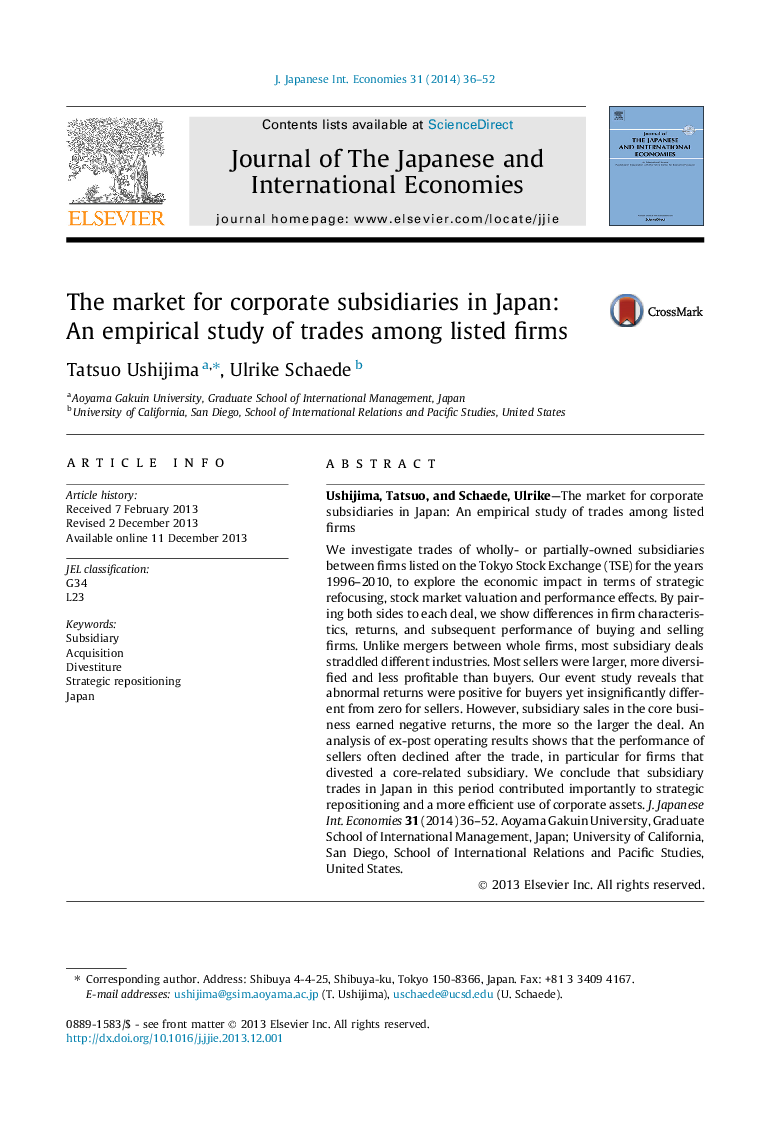| Article ID | Journal | Published Year | Pages | File Type |
|---|---|---|---|---|
| 965091 | Journal of the Japanese and International Economies | 2014 | 17 Pages |
Abstract
We investigate trades of wholly- or partially-owned subsidiaries between firms listed on the Tokyo Stock Exchange (TSE) for the years 1996-2010, to explore the economic impact in terms of strategic refocusing, stock market valuation and performance effects. By pairing both sides to each deal, we show differences in firm characteristics, returns, and subsequent performance of buying and selling firms. Unlike mergers between whole firms, most subsidiary deals straddled different industries. Most sellers were larger, more diversified and less profitable than buyers. Our event study reveals that abnormal returns were positive for buyers yet insignificantly different from zero for sellers. However, subsidiary sales in the core business earned negative returns, the more so the larger the deal. An analysis of ex-post operating results shows that the performance of sellers often declined after the trade, in particular for firms that divested a core-related subsidiary. We conclude that subsidiary trades in Japan in this period contributed importantly to strategic repositioning and a more efficient use of corporate assets.
Related Topics
Social Sciences and Humanities
Economics, Econometrics and Finance
Economics and Econometrics
Authors
Tatsuo Ushijima, Ulrike Schaede,
